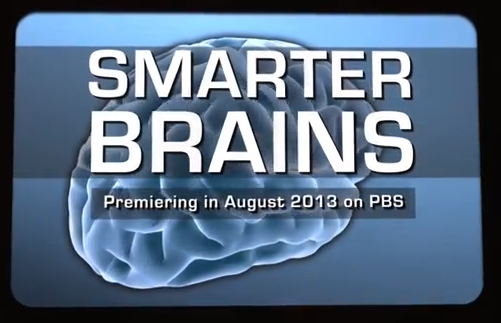Use Your Body to Boost Mental Performance
 Cognition is embodied. That is, how well you think and learn is in part controlled by how you use your body. We have covered many examples of how this works in the Next Brain Blog including stepping back for better emotional control, talking with your hands, thinking by walking around, posture effects (e.g. folding your arms) and short-duration physical activities interspersed with study.
Cognition is embodied. That is, how well you think and learn is in part controlled by how you use your body. We have covered many examples of how this works in the Next Brain Blog including stepping back for better emotional control, talking with your hands, thinking by walking around, posture effects (e.g. folding your arms) and short-duration physical activities interspersed with study.
See Use Your Body to Improve Thinking Instantly for more details.
Now the PsyBlog offers an excellent summary in 8 Easy Bodily Actions that Transform Mental Performance. These include for example, how using a deep voice can improve abstract thinking, a power stance can improve your sense of control, and just imaging yourself walking towards an important person or object can increase a sense of mastery.
Some of these are new to me and I am actively experimenting with them. Interested to hear from readers that have tried them out.
Categories: Lifestyle, Manage Emotions, Memory and Learning, Mental Focus, Problem Solving, Training Tags:
Categories: Cognitive Development, Diet, IQ and EQ, Lifestyle, Training Tags:
25 Proven Ways to Develop Willpower
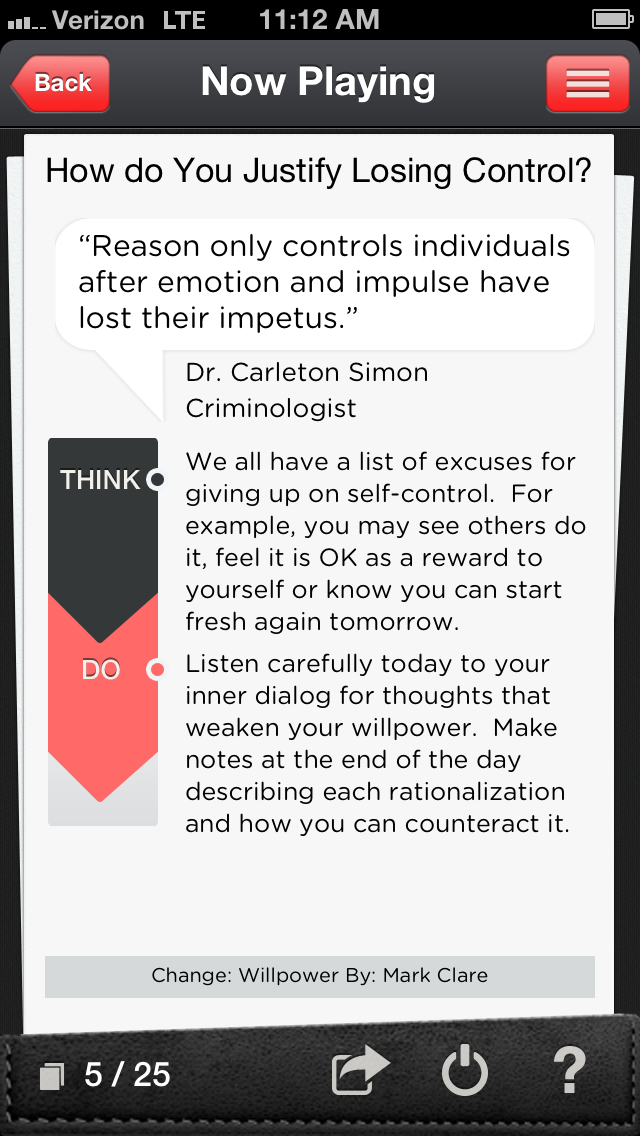 Willpower is the ability to carry out plans and reach goals especially when obstacles challenge us. It is what we use to resist temptation and keep going when we want to stop. Motivation, self-control, determination and grit all rolled up into our force of will.
Willpower is the ability to carry out plans and reach goals especially when obstacles challenge us. It is what we use to resist temptation and keep going when we want to stop. Motivation, self-control, determination and grit all rolled up into our force of will.
The topic of willpower is getting a lot of attention these days. A few examples:
- Akst, D. (2011). We Have Met the Enemy: Self-Control in an Age of Excess
- Baumeister, R. and Tierney, J. (2011). Willpower: Rediscovering the Greatest Human Strength
- McGongal, K. (2011). The Willpower Instinct: How Self-Control Works, Why It Matters, and What You Can Do To Get More of It
Some researchers argue that willpower is like a muscle. If we push too hard we become fatigued and can fail. On the other hand, if we train we can become very strong and develop endurance. But what techniques should we use to train?
To guide my training efforts I have reviewed the research and compiled 25 techniques that are practical enough to use in an everyday setting. To keep things simple I’ve documented each technique on a knowledge card that takes only a few minutes to use. Check out the example card to the right.
You can access the techniques in NewHabits a free iPhone and iPad app. Look in the store for the willpower deck. In the morning I quickly scan the deck and pick a card I want to play. With each play I strengthen my willpower muscle. It is easy to share the cards with friends through email, Facebook or Twitter.
Give the App and try and share your cards with others. I would like to hear from readers about how well the cards work and what other cards should be added.
Categories: Books, Cognitive Development, Mental Focus, Software, Training Tags:
More Evidence for Mind-Body Techniques
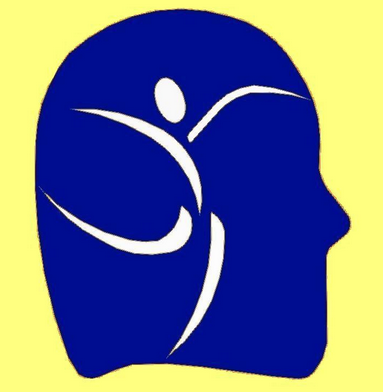 In the Next Brain Blog we look at evidence-based techniques for achieving peak mental performance at any age. What can we do to maintain brain health and improve cognitive performance?
In the Next Brain Blog we look at evidence-based techniques for achieving peak mental performance at any age. What can we do to maintain brain health and improve cognitive performance?
Several posts have focused on mind-body techniques. Such techniques ask us to focus on the connection between how we think and feel and various bodily functions and activities. Yoga, mindful breathing and mediation are examples. While such techniques are often viewed as fuzzy or new age, we have been documenting the growing evidence for how they improve brain function and cognitive performance on the Next Brain blog.
Additional evidence was recently published by the Boston University School of Medicine. They conduct a class with 27 medical students on Embodied Health: Mind-Body Approaches to Well-Being. It ran for 11 weeks and covered the neuroscience and methods for slow breathing, resistance breathing, Yoga, the placebo effect and mindful mediation practices. Students were asked to practice the methods at least three times per week.
Assessments before and after the course revealed a statistically significant improvement in the student’s capacity for self-regulation and self-compassion.
Self-regulation is our ability to manage our thoughts, feelings and impulses in order to achieve planned behaviors and goals. A capability that is essential for improvement, success and well-being in any walk of life.
For more information you can access the entire article for free. Be sure to check out table one that lists the topics and required readings for the course.
While the Boston work does not surface any new techniques it does add to the evidence for the effectiveness on the mind-body approach. The fact that doctors-to-be are learning about them in medical school signals a maturing and acceptance of the the approach.
How are you using mind-brain techniques to improve your cognitive performance?
Source of Image: Dr. Deb’s Psychological Perspectives
Categories: Ancient Ways, Executive Function, Manage Emotions, Training Tags:
Train Your Creative Brain in Minutes a Day
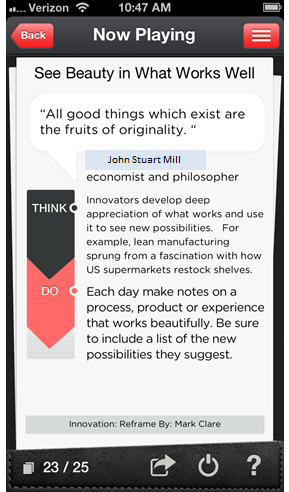 I recently completed a review of some of the best creativity techniques and innovation methods. My goal was to distill proven practices for improving creativity into a set of knowledge cards that could be used for brain training. Unlike most approaches to brain training, I did not want to create a game or some structured task to do on a computer. I wanted brain training “in the wild” or something that you can do along with your everyday activities and work efforts. That way you will see improvements in areas that matter. The result is a mobile brain training solution that runs on the iPhone, iPad and iPod touch:
I recently completed a review of some of the best creativity techniques and innovation methods. My goal was to distill proven practices for improving creativity into a set of knowledge cards that could be used for brain training. Unlike most approaches to brain training, I did not want to create a game or some structured task to do on a computer. I wanted brain training “in the wild” or something that you can do along with your everyday activities and work efforts. That way you will see improvements in areas that matter. The result is a mobile brain training solution that runs on the iPhone, iPad and iPod touch:
You can access the Reframe cards through NewHabits a free App that includes others decks on innovation and behavior change.
Play a card daily from your mobile device to experiment with and eventually master a proven creativity technique. Cards are designed to fit into everyday routines and take minutes to use. The Reframe cards work by converting general advice and complex how-to knowledge about creativity into right-sized chunks that are optimized for how we learn from experience.
The Reframe deck includes 25 cards. An example is shown to the right. Many of the cards assume you are working on a hard problem or innovation challenge that requires creativity. If you don’t have one pick a challenge from around the house – how to get the kids to do their homework or how to pick a wow gift for your spouse – and use that.
The deck includes a table of contents that makes it easy to manage and navigated the cards. You can share cards for free with friends via email, text messages, Twitter, Facebook and other means. For more information on how the App works check out the screen walk through.
Give the App a try and please comment on your experiences.
Categories: Problem Solving, Software, Training Tags:
$25,000 Brain Health Contest Ends May 5, 2013
 The AARP is sponsoring a sweepstakes designed to promote brain health. If you are 45 years or older you can sign up for free, learn about brain health and play various brain training games to compete. Games include memory match, private eye, split word, countdown and a brain teaser. You earn an entry for each level you complete and restrictions apply. You can also read library articles to earn entries if the games don’t appeal to you.
The AARP is sponsoring a sweepstakes designed to promote brain health. If you are 45 years or older you can sign up for free, learn about brain health and play various brain training games to compete. Games include memory match, private eye, split word, countdown and a brain teaser. You earn an entry for each level you complete and restrictions apply. You can also read library articles to earn entries if the games don’t appeal to you.
I hope they publish some data on the results once the contest is over. It will be interesting to see if this approach has a material impact on brain health.
I am interested to hear from readers that know about other brain health contests or sweepstakes.
Categories: Older Adult, Software, Training Tags: games
Free Mobile App for Building Cognitive Skills
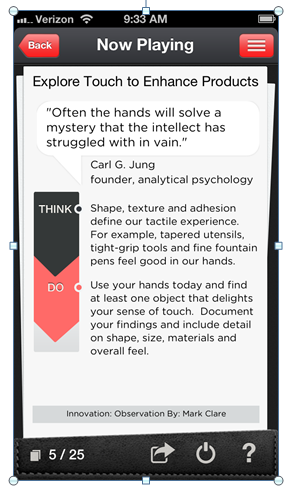 I’ve just launched NewHabits an iPhone and iPad App that delivers decks of flashcards for learning new skills and behaviors from experience. Each card in a deck explains what to THINK and DO to practice a new skill. All the cards are backed by research. You can play a card daily from your device. They take just minutes to use. As you play more cards the learning effects accumulate over time into significant new skills.
I’ve just launched NewHabits an iPhone and iPad App that delivers decks of flashcards for learning new skills and behaviors from experience. Each card in a deck explains what to THINK and DO to practice a new skill. All the cards are backed by research. You can play a card daily from your device. They take just minutes to use. As you play more cards the learning effects accumulate over time into significant new skills.
An example card from a deck for improving observation skills is shown to the right.
There are currently 7 decks in the NewHabits store, 2 are free and there are 6 more in development. Some relate directly to cognitive skills and should be of interest to readers of the Next Brain Blog, for example:
- Willpower: Science for maximizing self control
- Motivation: Science for maximizing the energy to act
- Observation: Use all five senses to deepen learning
- Reframe: Master advanced creativity techniques
- Interpret: Learn to make sense of experience
- Influence: Convince others to act on your ideas.
There is even a forthcoming deck on Brain Health: Achieve peak mental performance at any age. This deck will be written especially for readers of the Next Brain blog.
Many other decks are possible. I am actively looking for new or experienced authors interested in publishing skill-building decks on a royalty basis. Free training and support on how to create a deck is available.
If you use a Droid phone or tablet you can still get a detailed look at the App in a screen walkthrough.
I am interested to hear from readers that use the decks or want to create new ones. You can contact me directly at mark.k.clare@gmail.com or 260-433-7923.
Champion Level Memorization Technique
 For 16 years there has been an annual contest to determine who in the USA has the best memory. There are seven events, including a poetry event, and 53 mental athletes registered to compete in 2013. The contest is taking place today!
For 16 years there has been an annual contest to determine who in the USA has the best memory. There are seven events, including a poetry event, and 53 mental athletes registered to compete in 2013. The contest is taking place today!
The BrainWorld blog has a good post about the 2012 champion who provides insights into his success. While none of the general advice will surprise readers of the Next Brain Blog (exercise, nutrition, social well-being and mental engagement), the specific technique for memorizing long lists of items is useful.
To use the technique you convert each item in the list into a picture that is meaningful and then place the pictures in order along a path or location that is familiar. For example, if memorizing a list of numbers you could translate each number into the jersey number of your favorite football player and then visualize each player in a specific room in your house. You can then recall the numbers by doing a mental walk through of your house and look at each player’s jersey.
I am interested to hear from readers that use specific memorization techniques.
Categories: Memory and Learning, Training Tags:
Facebook Improves Mental Updating by 25%
An interesting preliminary study from the psychology department at the University of Arizona found that seniors trained to use Facebook showed measurable improvement in their cognitive abilities. More specifically:
“In the follow-ups, those who had learned to use Facebook performed about 25 percent better than they did at the start of the study on tasks designed to measure their mental updating abilities”
Mental updating is the ability to add and delete contents in your working memory. The study included a small group of seniors ages 68-91 with little or no prior Facebook experience. Participants friended only those in their group and made at least one short post daily.
Researchers believe that the constant information updating on Facebook and its relatively complex interface are responsible for the improvement. But more research is needed.
I am interested to hear from readers that use Facebook as a means to boost cognitive performance or maintain brain health.
Categories: Memory and Learning, Mental Focus, Older Adult, Software, Training Tags:
Early Musical Training Boosts Motor Skills
 An interesting finding for parents looking to accelerated their kid’s brain development:
An interesting finding for parents looking to accelerated their kid’s brain development:
“A study published last month in the Journal of Neuroscience suggests that musical training before the age of seven has a significant effect on the development of the brain, showing that those who began early had stronger connections between motor regions – the parts of the brain that help you plan and carry out movements.”
The study found that the effect is strongest between the ages of 6-8 and that there appears to be no effect in adults.
Interested to hear from readers that are using music as part of their Next Brain development efforts.
Categories: Child, Cognitive Development, Music and Audio, Training Tags:

